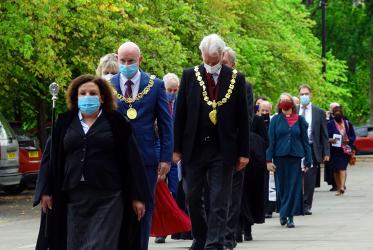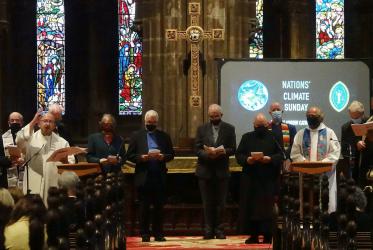Displaying 61 - 80 of 365
05 October 2021
Scottish and UK religious leaders call for urgent climate action
20 September 2021
Climate Sunday: an opportunity for churches to act for creation
06 September 2021
Walk the Talk
A Toolkit to Accompany the "Roadmap for Congregations, Communities and Churches for an Economy of Life and Ecological Justice"
31 August 2021
Prayer service will commemorate European flood victims
12 August 2021
Ecumenical International Youth Day 2021 Event Toolkit
Young People and Climate Justice
06 August 2021

















